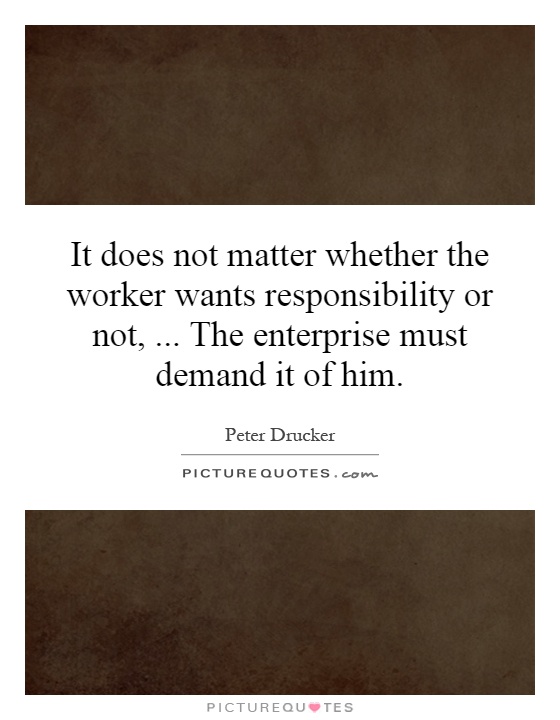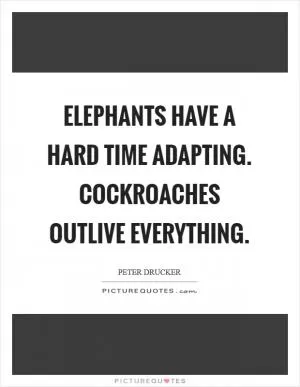It does not matter whether the worker wants responsibility or not,... The enterprise must demand it of him

It does not matter whether the worker wants responsibility or not,... The enterprise must demand it of him
Peter Drucker, a renowned management consultant and author, believed that responsibility is a crucial aspect of a worker's role within an organization. In his book, "The Practice of Management," Drucker famously stated, "It does not matter whether the worker wants responsibility or not, the enterprise must demand it of him." This statement encapsulates Drucker's belief that responsibility is not a choice but a requirement for all employees in order to ensure the success and effectiveness of the organization.Drucker argued that responsibility is essential for the growth and development of both the individual worker and the organization as a whole. By demanding responsibility from employees, organizations can foster a culture of accountability, ownership, and initiative. When workers are held accountable for their actions and decisions, they are more likely to take ownership of their work and strive for excellence. This, in turn, leads to increased productivity, efficiency, and overall success for the organization.
Furthermore, Drucker believed that responsibility is a key factor in employee motivation and engagement. When workers are given the opportunity to take on more responsibility, they feel valued, trusted, and empowered. This sense of ownership and autonomy can lead to higher levels of job satisfaction, commitment, and loyalty. Employees who feel a sense of responsibility are more likely to go above and beyond in their roles, take initiative, and contribute to the overall success of the organization.












 Friendship Quotes
Friendship Quotes Love Quotes
Love Quotes Life Quotes
Life Quotes Funny Quotes
Funny Quotes Motivational Quotes
Motivational Quotes Inspirational Quotes
Inspirational Quotes